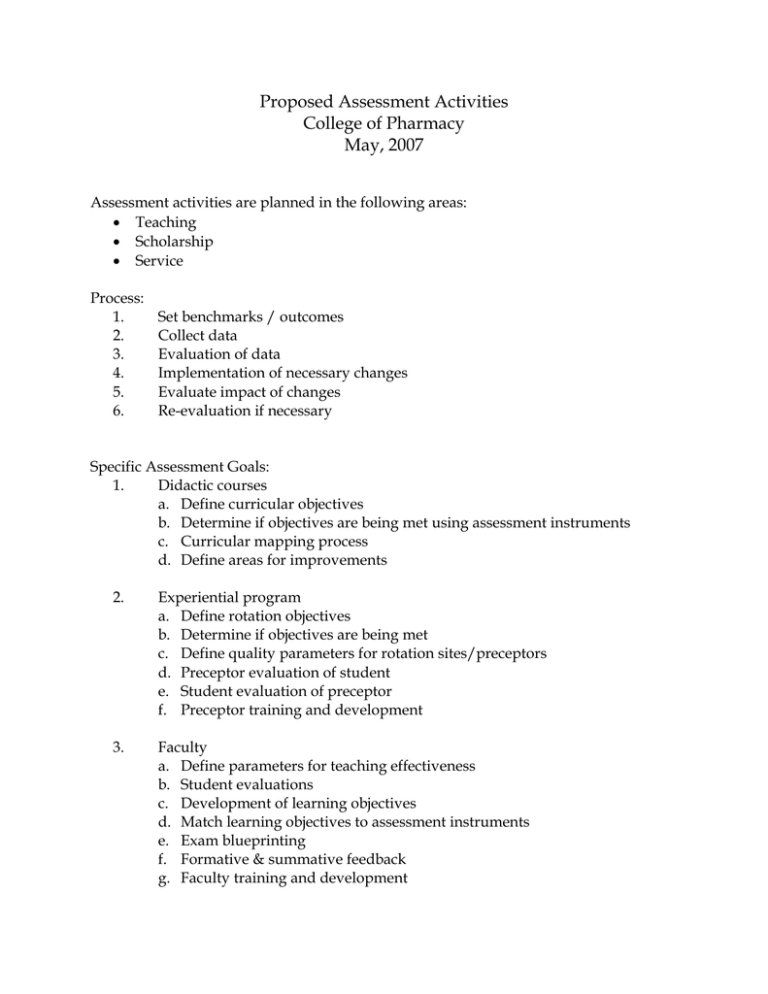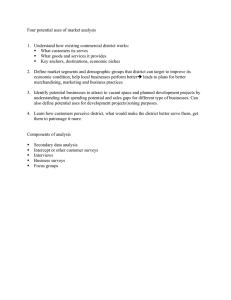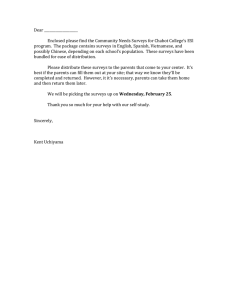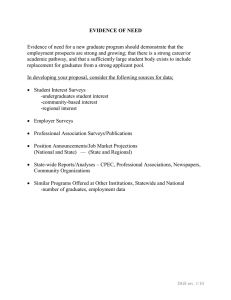CoP Student Learning Outcomes
advertisement

Proposed Assessment Activities College of Pharmacy May, 2007 Assessment activities are planned in the following areas: Teaching Scholarship Service Process: 1. 2. 3. 4. 5. 6. Set benchmarks / outcomes Collect data Evaluation of data Implementation of necessary changes Evaluate impact of changes Re-evaluation if necessary Specific Assessment Goals: 1. Didactic courses a. Define curricular objectives b. Determine if objectives are being met using assessment instruments c. Curricular mapping process d. Define areas for improvements 2. Experiential program a. Define rotation objectives b. Determine if objectives are being met c. Define quality parameters for rotation sites/preceptors d. Preceptor evaluation of student e. Student evaluation of preceptor f. Preceptor training and development 3. Faculty a. Define parameters for teaching effectiveness b. Student evaluations c. Development of learning objectives d. Match learning objectives to assessment instruments e. Exam blueprinting f. Formative & summative feedback g. Faculty training and development 4. Analysis of grading system a. Use of reference vs norm based methods b. Identify trends in grading c. Evaluation of item analysis to improve question-writing 5. Collection of information from students regarding areas for improvements a. Focus groups b. Student retreats 6. Analysis of admissions data a. Once sufficient data is collected, identify factors associated with student success b. Evaluation of ethnic diversity c. Plot trends across time d. Evaluate admissions processes, scoring rubrics and interviews to determine effectiveness of the admissions process 7. Collection of data from various surveys a. Alumni surveys b. Employer surveys c. Faculty surveys d. Administrator surveys e. Student entrance / exit surveys f. Surveys from professional associations (AACP, ASHP etc) 8. Evaluate achievement of CAPE /other outcomes a. Professional practice based outcomes b. General ability based outcomes 9. Evaluation of achievements in active teaching and student-centered learning a. Lifelong learning b. Student self-assessment c. Critical thinking d. Cooperative learning e. Problem-based learning f. Evidence-based g. Student-centered 10. Evaluation of curricular integration a. Vertical b. Horizontal Assessment methods 5. 1. Written exercises / assessments a. Multiple choice & matching b. Short answer c. Essays 2. Assessment by supervising clinicians a. Rotation evaluations b. Clinical observation c. Structured oral examinations 3. Clinical simulations a. OSCE b. Standardized patients c. Computer simulations 4. 360° / Multi-source assessments a. Peer b. Patient c. Clinician/Instructors d. Self Performance in standardized examinations (e.g. State Board exams)


